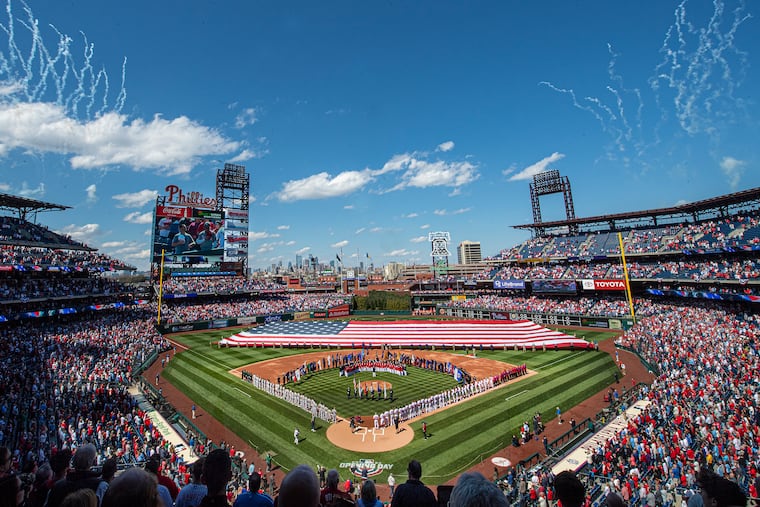Phillies’ new bag policy squeezes the fun out of baseball | Opinion
Just weeks into the season, it’s time to put this bad policy out with the trash.

When I left my South Philly home on Monday night to attend my first Phillies game of the season, I was practically skipping with excitement. But arriving at the stadium came with quite the buzzkill: the Phillies’ new, extremely restrictive bag policy, a most unwelcome addition to the ballpark this year. Just weeks into the season, it’s time to put this bad policy out with the trash.
Security workers told me the wallet-sized bag I brought, which fits only my phone, keys, SEPTA key, credit cards, and necessary medication, was considered a fanny pack — now on the list of Phillies’ prohibited bags, alongside handbags, totes, camera bags, backpacks, binocular cases, duffel bags, and drawstring bags. My boyfriend brought our hoagies and blanket in a plastic bag, and he, too, was turned away by a manager who called it a tote. We were just there to see some baseball, and now we had to find somewhere to stash our stuff.
This new policy is extreme, illogical, and unreasonable. It complicates what should be an easygoing trip to the ballpark. No one who has ever attended a baseball game would reasonably think that a wallet-sized bag or a single-compartment tote — both of which were allowed in Citizens Bank Park until recently — should keep you out of the stadium.
If ownership thinks fans aren’t paying attention, they’re wrong. Phillies fans aren’t happy about the change, calling out the policy on social media for inconsistent and uneven enforcement and noting the confusing policy gaps.
The Phillies’ new policy is out of line with other major league stadiums: The Mets allow “all purses, diaper bags ... tote, drawstring and messenger style bags along with small soft-sided coolers that do not exceed 16′x16′x8′” along with “totally clear backpacks.” Teams including the Yankees, Cubs, Guardians, Giants, Angels, Marlins, and Athletics all have similar policies.
The Phillies’ policy seems to be grounded less in safety or security than in the ability of corporate ownership to charge baseball fans for anything and everything — like the $10-a-game lockers that security suggests you shell out for if you, like us, arrived at the game via SEPTA, without a car trunk to store your contraband. (Fans who can afford to have a car and pay $22 to park may be OK.)
Phillies ownership is glad to have us fork over $6 for a bottle of water and $20 for burger and fries if you can’t carry dinner from home in your pockets or the palm of your hands. But many fans can’t afford or simply don’t want to drop $50 for a couple of hot dogs and sodas and prefer bringing local hoagies to enjoy. It’s part of many families’ baseball traditions to bring local snacks to the game. It’s part of the fun — and after all, isn’t that what baseball is supposed to be about?
The only bag on the Phillies’ preapproved list that most folks would typically own is a plastic bag — but plastic bags have been banned in the city of Philadelphia since October. Are fans supposed to leave the city to get one ahead of attending a game?
This ridiculous new rule is also steeped in hypocrisy. The Phillies themselves will violate this policy with two, probably three ballpark giveaways this season, as reporter Alec Kostival noted: A crossbody purse, a cooler bag, and a tote bag. Rules for thee but not for me, eh, Phillies?
Coming to the ballpark should be an enjoyable experience, but the new bag policy tightens the squeeze fans have already been feeling as the cost of attending a game continues to rise, while billionaire owners rake in record revenue. Phillies ownership seems hell-bent on nickel-and-diming fans as much as possible, even if it makes going to a baseball game challenging.
Baseball is simple, and going to a game should be, too. It’s time for the Phillies to adopt a simpler, reasonable bag policy that’s in line with other organizations and makes attending accessible for all.
Melissa McCleery runs a small business helping activists, organizers, and everyday people tell their stories and win resources and policies for the public good. @mkmccleery